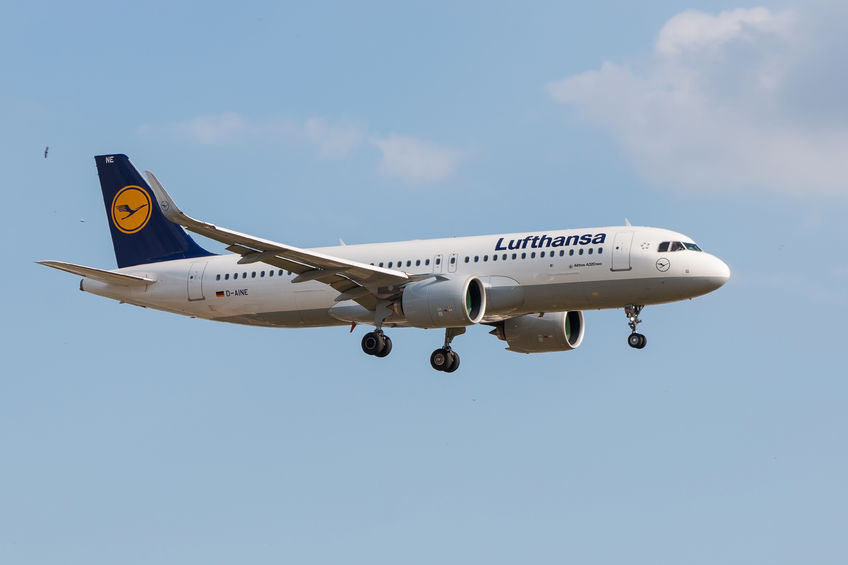Airbus is looking to subsidies from European governments to develop a replacement for the Airbus A320 family starting in the next decade.
The head of Airbus has said the group “might need some support” from European governments for a new, multibillion-dollar commercial aircraft programme as it gears up for a successor to its best-selling A320 family of jets.
Chief executive Guillaume Faury indicated that Airbus could ask for taxpayer backing — an increasingly politicised issue as governments try to help industry decarbonise — to launch a single-aisle aircraft and a shorter-range, hydrogen-powered plane.

Lufthansa A320neo landing at London Heathrow, Copyright: jarekk / 123RF Stock Photo
European governments will have to thread a needle to provide this support, both because they entered into a settlement with the U.S. in 2021 committing that subsidies wouldn’t advantage one planemaker over another, and also because they are pursuing complaints over U.S. subsidies in the Biden Administration’s Inflation Reduction Act.
The model that would be used is the “repayable launch investment” where governments get their money back if commercial targets for new aircraft are met, with the head of Airbus saying,
We need to find acceptable mechanisms to incentivise private sector investment and share risks with governments in order to support the design and development of new aircraft programmes that will deliver the decarbonisation of aerospace.
Put another way, they’re looking to privatize profits while socializing losses.
- Airbus receives government loans to fund development
- They pay back the loan if the project is successful
- They do not pay back the loan if the project is unsuccessful
European taxpayers bear all of the risk under this model. Best case is they do not lose money. And the average taxpayer can ill afford this.
Ownership of Airbus is somewhat opaque, even as a public company, with state investments through holding companies. France and Germany each own about 11% of the company while Spain owns about 4%. These countries also own shares that grant them video rights over key decisions.
If loans were to be provided by France, Germany and Spain then their taxpayers would bear the burden. The average citizen of Spain has an income that’s about 60% lower than in the U.S.


Question: what “subsidies” does Boeing receive in the Inflation Reduction Act? I’m not being argumentative, but I’m genuinely interested. What Airbus is asking for sounds like a pretty direct subsidy; I’m curious about any potential issues around Boeing.
I would find it hard to believe that a new A320 (A420?) wouldn’t be successful.
The whole reason Airbus survived and grew was because of government subsidies. This is just a continuing version. A lot more aircraft companies in the USA would have survived if the USA government had done the same subsidizing. Soon there will be Chinese passenger aircraft, also subsidized.
R&D for hydrogen jet engine, SAF and other potential fuels & engines would make more sense and be more impactful for govt subsidies.
@Kevin – It’s not Boeing being subsidized
Can’t they just copy Boeing and have the bulk of the development paid by taxpayers under its military division (which for Boeing is called the Defense, Space & Security division)? Or they haven’t reached that level of corruption?
Can’t they just redomicile to Israel and apply for US foreign aid?
It seems a little ironic that Airbus – who has screamed bloody murder over U.S. subsidies (and vice versa with Boeing) – now openly comes begging for subsidies themselves. I find it tough to see how the mentioned countries could get away with this.
@Jake, proof please about Boeing using the development paid by taxpayers under its military division. If you aren’t aware, government contracts are heavily audited. So what you are saying is that even the US government is sliding extra money under the table to help R&D for commercial. Again, asking for your proof.